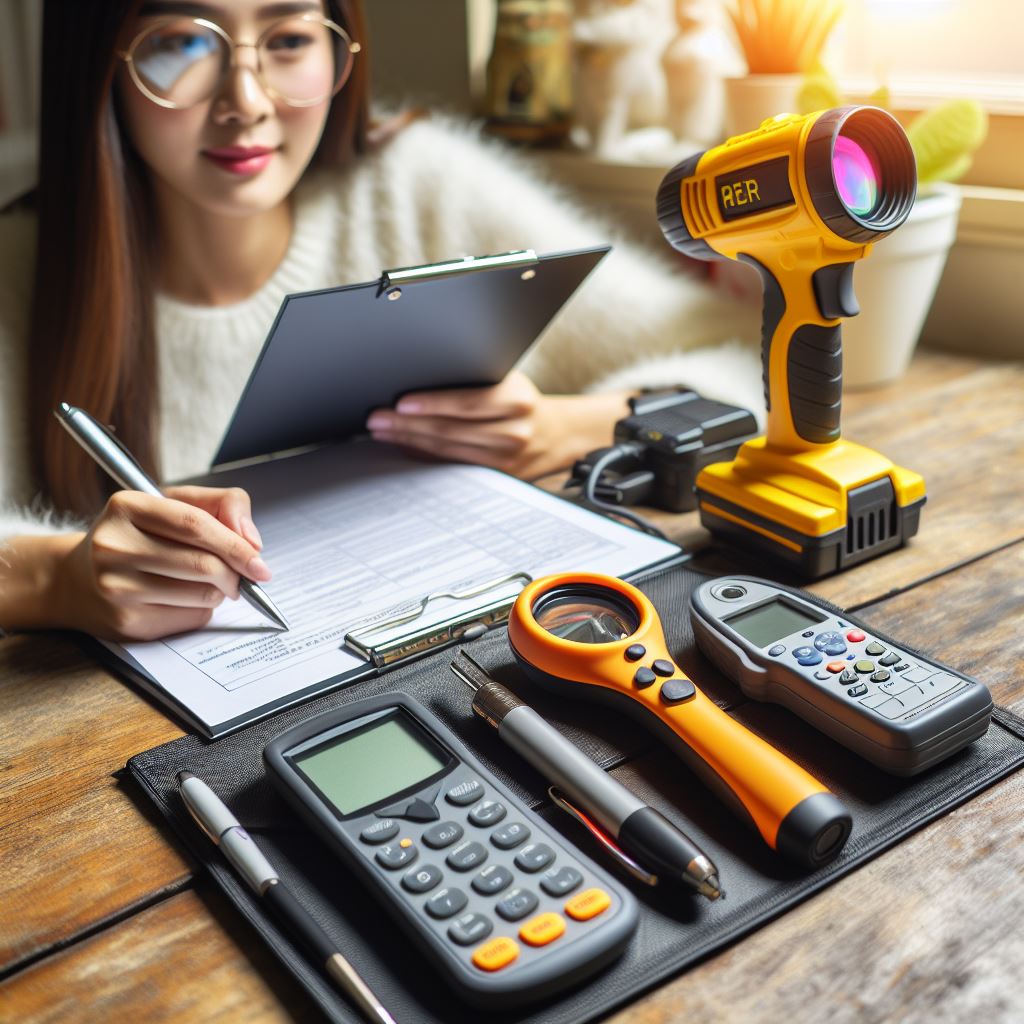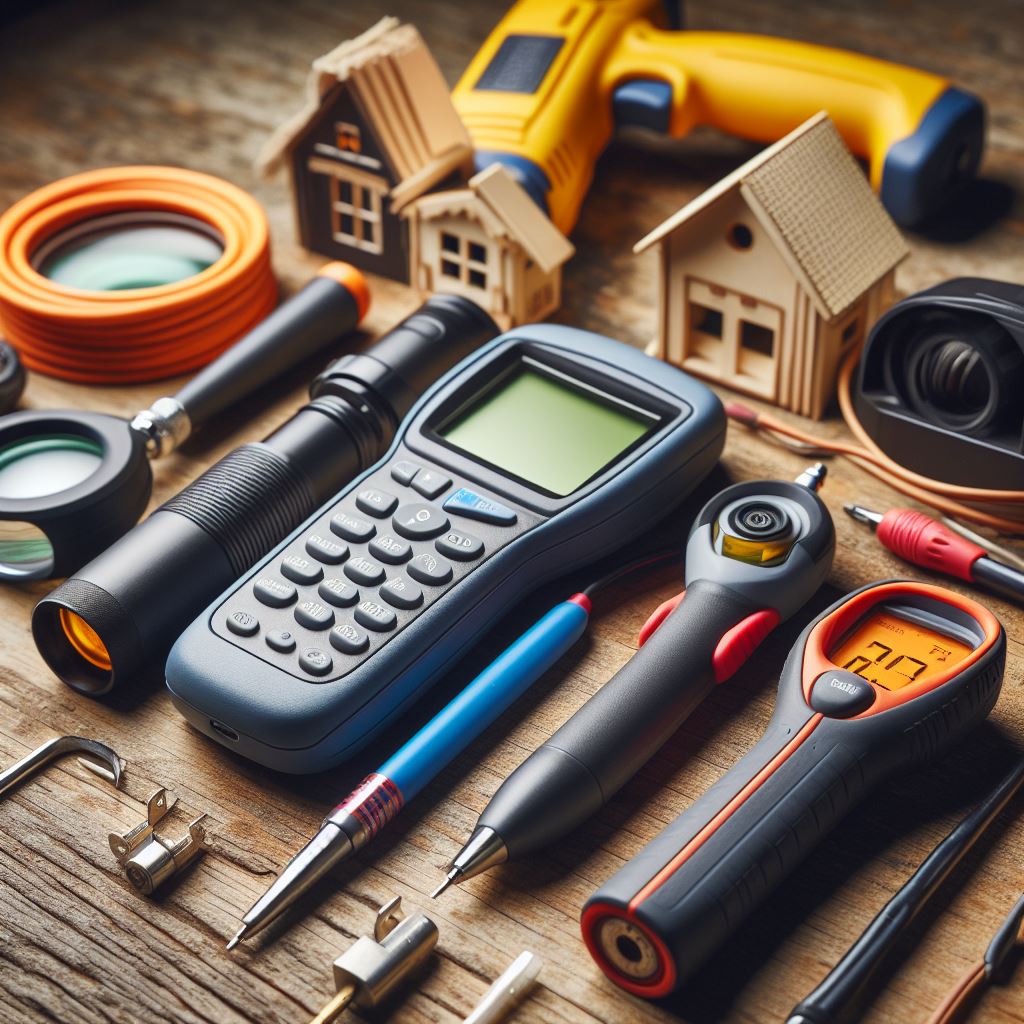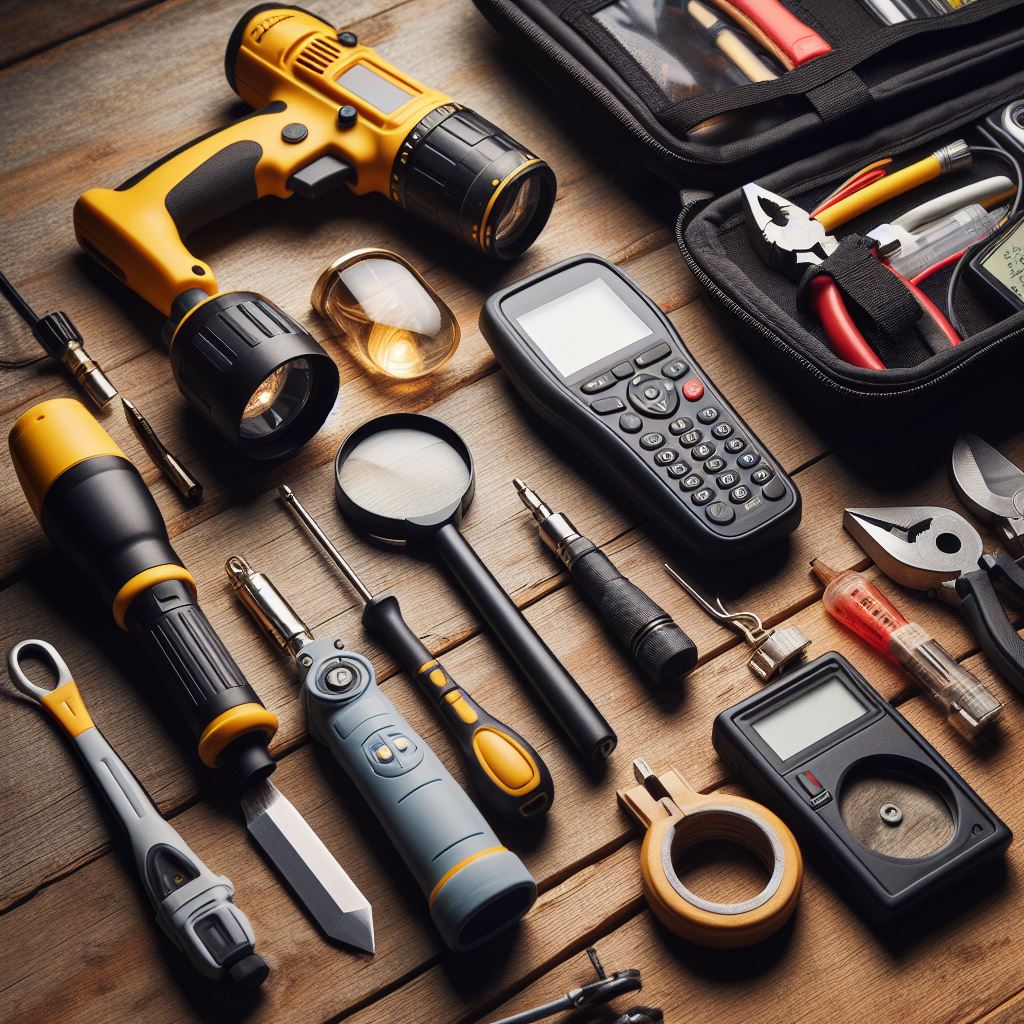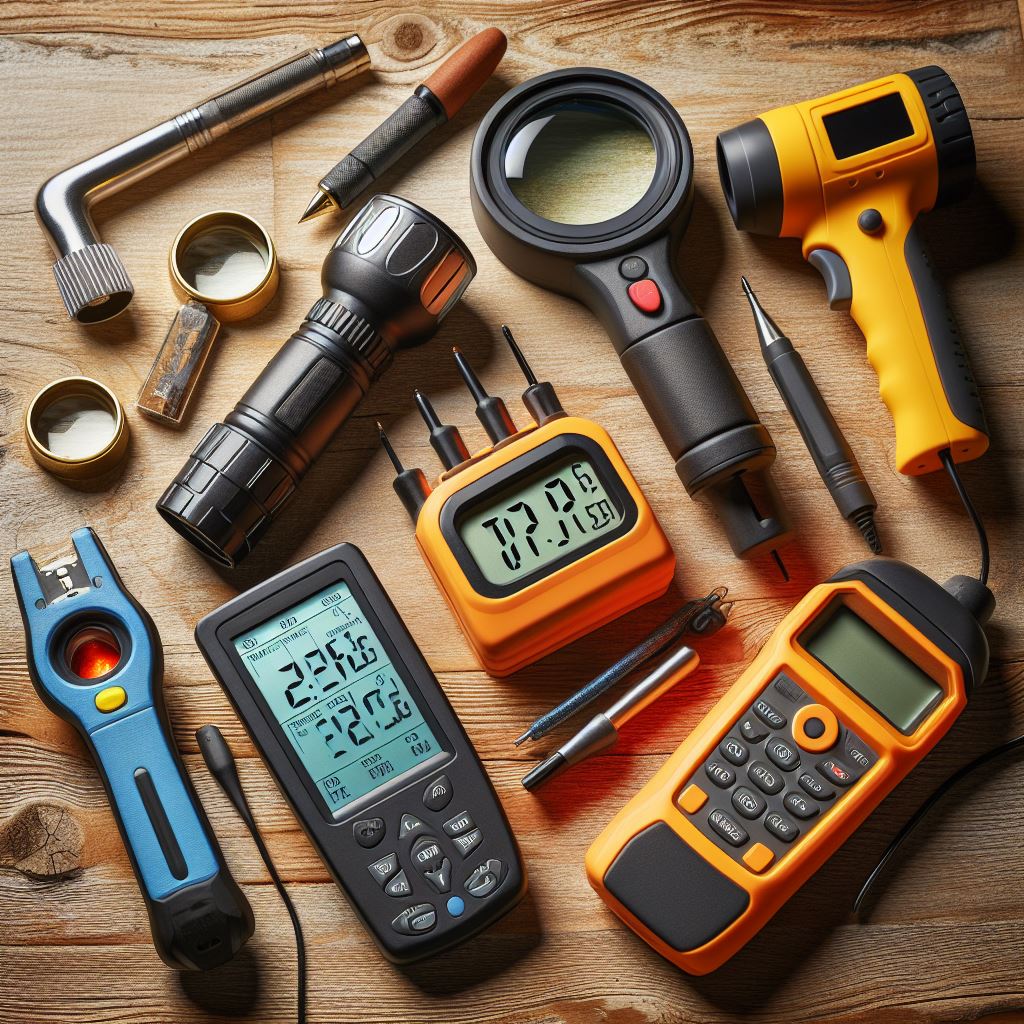home inspection tools
Home inspection tools are essential instruments used by professionals to thoroughly assess the condition of a house or property before buying or selling it. These tools enable inspectors to detect any hidden issues, potential hazards, or structural problems that could affect the value or safety of the property. Some common home inspection tools include moisture meters, which detect moisture levels in walls and floors, thermal imaging cameras, which identify heat or energy loss, and electrical testers, which check the functionality of electrical systems. Other tools like ladders, flashlights, and measuring devices are also crucial for accessing hard-to-reach areas and taking accurate measurements. With the help of these tools, home inspectors can provide accurate and detailed reports to their clients, ensuring informed decisions and peace of mind when it comes to buying or selling a property.
Structural Analysis Equipment
Structural analysis equipment refers to a range of tools and instruments used to evaluate the integrity and strength of various structures, such as buildings, bridges, and mechanical components. These equipment are designed to measure and analyze critical parameters like load capacity, stress, strain, and displacement. They play a vital role in ensuring the safety and reliability of structures, as they can detect potential weaknesses or defects that might compromise their performance. Structural analysis equipment includes devices like strain gauges, accelerometers, load cells, and displacement sensors, which are used in conjunction with specialized software to collect and analyze data. By providing accurate and comprehensive information about structural behavior, this equipment enables engineers and technicians to make informed decisions about design modifications, maintenance, and repairs, ultimately enhancing the overall safety and efficiency of various structures.
Essential Tools for Home Inspections
Home inspections are a crucial part of the home buying process. They provide potential buyers with a comprehensive assessment of the property’s condition, helping them make informed decisions. To conduct a thorough inspection, home inspectors rely on a variety of tools. These tools enable them to examine different aspects of the property, from the foundation to the roof. In this article, we will discuss some of the necessary tools that every home inspector should have in their arsenal.

One of the most basic tools that a home inspector needs is a flashlight. A good flashlight is essential for illuminating dark areas such as crawl spaces, attics, and basements. It allows the inspector to see clearly and identify any potential issues that may be hidden in the shadows. Additionally, a flashlight with a strong beam can help the inspector spot leaks or other signs of water damage.
Another indispensable tool for home inspectors is a moisture meter. This device measures the moisture content in various materials, such as wood and drywall. By using a moisture meter, inspectors can detect hidden leaks or moisture problems that may lead to mold growth or structural damage. This tool is particularly useful in areas prone to high humidity or water intrusion.
A thermal imaging camera is another valuable tool for home inspectors. This device uses infrared technology to detect temperature differences in different areas of the property. By scanning the walls, ceilings, and floors, inspectors can identify hidden issues such as insulation gaps, electrical problems, or even pest infestations. The thermal imaging camera provides a visual representation of temperature variations, allowing inspectors to pinpoint potential problems that may not be visible to the naked eye.
To assess the structural integrity of a property, home inspectors rely on a variety of tools. One of these tools is a level, which helps determine if surfaces are straight and even. A level is particularly useful when inspecting floors, walls, and countertops. Additionally, a tape measure is essential for measuring dimensions and ensuring that spaces meet building code requirements. Inspectors also use a stud finder to locate wall studs, which are crucial for hanging heavy objects or installing fixtures securely.
Electrical issues are a common concern in many homes, which is why home inspectors need specialized tools to assess the electrical system. A multimeter is a versatile tool that measures voltage, current, and resistance. It allows inspectors to test outlets, switches, and electrical panels for proper functioning. Insulation testers are also essential for checking the insulation resistance of electrical wiring, ensuring that it meets safety standards.
Lastly, a ladder is an indispensable tool for home inspectors. It allows them to access areas that are not easily reachable, such as roofs, chimneys, or high ceilings. A sturdy and reliable ladder ensures the safety of the inspector while conducting the inspection.
In conclusion, home inspectors rely on a variety of tools to conduct thorough inspections. From flashlights and moisture meters to thermal imaging cameras and multimeters, these tools enable inspectors to assess different aspects of the property. By having the necessary tools at their disposal, home inspectors can provide accurate and comprehensive reports, helping potential buyers make informed decisions.
Must-Have Equipment for Home Inspectors
A home inspector plays a crucial role in the real estate industry. Their job is to thoroughly examine a property and identify any potential issues or defects. To perform this task effectively, a home inspector must have the necessary tools at their disposal. These tools not only aid in the inspection process but also ensure accuracy and efficiency. In this article, we will discuss the must-have equipment for home inspectors.

One of the most essential tools for a home inspector is a flashlight. A powerful flashlight allows the inspector to illuminate dark areas such as crawl spaces, attics, and basements. This is particularly important as these areas are often prone to hidden defects. A flashlight with adjustable brightness levels and a long battery life is highly recommended.
Another indispensable tool for a home inspector is a moisture meter. This device helps detect the presence of moisture in various materials such as wood, drywall, and concrete. Excessive moisture can lead to mold growth and structural damage, so it is crucial for an inspector to identify these issues. A moisture meter provides accurate readings and helps determine the severity of the problem.
A thermal imaging camera is also a valuable tool for a home inspector. This device uses infrared technology to detect temperature variations in a property. By identifying areas of heat or cold, a thermal imaging camera can reveal hidden issues such as insulation gaps, water leaks, and electrical problems. This tool is particularly useful in identifying energy inefficiencies and potential safety hazards.
To assess the structural integrity of a property, a home inspector needs a good quality ladder. A sturdy ladder allows the inspector to access high areas such as roofs, chimneys, and gutters. It is important to choose a ladder that is lightweight, easy to transport, and has a high weight capacity. Safety features such as non-slip steps and stabilizing mechanisms should also be considered.
In addition to these tools, a home inspector should have a comprehensive set of hand tools. These include screwdrivers, pliers, wrenches, and a tape measure. These tools are essential for inspecting electrical systems, plumbing fixtures, and other components of a property. It is important to invest in high-quality tools that are durable and reliable.
Furthermore, a home inspector should have a digital camera or a smartphone with a good camera. Visual documentation is crucial in the inspection process as it provides evidence of any defects or issues found. Clear and detailed photographs can be included in the inspection report and serve as a reference for future repairs or negotiations.
Lastly, a home inspector should have a reliable vehicle to transport themselves and their equipment to different inspection sites. A spacious vehicle with ample storage space is ideal for carrying all the necessary tools and supplies. It is also important to have a GPS navigation system to ensure timely arrival at each location.
In conclusion, a home inspector requires a range of tools to effectively carry out their duties. From flashlights and moisture meters to thermal imaging cameras and ladders, each tool serves a specific purpose in the inspection process. Hand tools, a digital camera, and a reliable vehicle are also essential for a home inspector. By equipping themselves with these necessary tools, home inspectors can provide accurate and thorough assessments of properties, ensuring the safety and satisfaction of their clients.
Top Tools Every Home Inspector Should Own
Home inspection is a crucial step in the process of buying or selling a property. It involves a thorough examination of a house or building to identify any potential issues or defects. To perform this task effectively, a home inspector must have the necessary tools at their disposal. In this article, we will discuss the top tools that every home inspector should own.
One of the most essential tools for a home inspector is a flashlight. A good quality flashlight is crucial for inspecting dark and hard-to-reach areas such as crawl spaces, attics, and basements. It helps the inspector to identify any signs of water damage, mold, or structural issues that may not be visible to the naked eye. Additionally, a flashlight with a strong beam can be used to check for leaks or cracks in plumbing systems.

Another indispensable tool for a home inspector is a moisture meter. This device is used to measure the moisture content in various materials such as wood, drywall, and concrete. Excessive moisture can lead to mold growth, rot, and structural damage. By using a moisture meter, a home inspector can detect hidden moisture problems that may not be apparent during a visual inspection. This tool is particularly useful in areas prone to water damage, such as bathrooms and basements.
A thermal imaging camera is also a valuable tool for a home inspector. This device uses infrared technology to detect temperature differences in a building. It can help identify areas of heat loss, insulation deficiencies, and electrical issues. For example, a thermal imaging camera can detect hidden leaks in plumbing systems or identify areas of inadequate insulation that may be causing energy loss. By using this tool, a home inspector can provide valuable insights into the energy efficiency of a property.
A digital camera is an essential tool for documenting the condition of a property during a home inspection. High-resolution photographs can be used as evidence of any defects or issues found during the inspection. These photographs can also be shared with clients and used to create detailed reports. In addition to a digital camera, a home inspector should also have a tape measure and a notepad for taking measurements and jotting down notes during the inspection.
Furthermore, a ladder is a must-have tool for a home inspector. It allows them to access areas that are not easily reachable, such as roofs, chimneys, and gutters. Inspecting these areas is crucial for identifying any potential issues, such as loose shingles, damaged flashing, or clogged gutters. A sturdy and reliable ladder is essential for ensuring the safety of the home inspector while performing their duties.
Lastly, a gas and carbon monoxide detector is a vital tool for a home inspector. These devices are used to detect the presence of harmful gases, such as carbon monoxide, which is odorless and invisible. A gas and carbon monoxide detector can help identify potential health hazards and ensure the safety of both the home inspector and the occupants of the property.
In conclusion, a home inspector must have the necessary tools to perform their job effectively. From flashlights and moisture meters to thermal imaging cameras and digital cameras, each tool plays a crucial role in identifying potential issues and documenting the condition of a property. By investing in these top tools, a home inspector can provide a comprehensive and accurate assessment of a property, ensuring the peace of mind of both buyers and sellers.
Key Tools for Effective Home Inspections
Home inspections are an essential part of the real estate industry, providing potential buyers with valuable information about the condition of a property. To conduct a thorough and effective home inspection, a home inspector must have the necessary tools at their disposal. These tools enable them to assess various aspects of a property, from its structural integrity to its electrical and plumbing systems. In this article, we will discuss some key tools that every home inspector should have in their arsenal.
One of the most important tools for a home inspector is a flashlight. A good flashlight is essential for illuminating dark and hard-to-reach areas, such as crawl spaces and attics. It allows the inspector to identify potential issues, such as water damage or pest infestations, that may not be immediately visible to the naked eye. Additionally, a flashlight with a strong beam can help the inspector spot any defects or irregularities in the electrical system.

Another indispensable tool for a home inspector is a moisture meter. This device measures the moisture content in various materials, such as wood and drywall. Excessive moisture can indicate the presence of leaks or water damage, which can lead to mold growth and structural issues. By using a moisture meter, the inspector can identify areas of concern and recommend appropriate remediation measures.
A thermal imaging camera is another valuable tool for a home inspector. This device uses infrared technology to detect temperature differences in a property. It can help identify areas of heat loss, which may indicate insulation problems or air leaks. Additionally, a thermal imaging camera can detect hidden moisture, electrical hotspots, and even termite infestations. By using this tool, the inspector can provide a more comprehensive assessment of the property’s energy efficiency and potential issues.
A digital camera is an essential tool for documenting the condition of a property during a home inspection. High-resolution photographs can serve as evidence of any defects or issues discovered during the inspection. These photographs can be included in the inspection report and shared with the client, providing them with a visual reference and supporting the inspector’s findings. A digital camera also allows the inspector to capture images of areas that may be difficult to access or require further investigation.
In addition to these specialized tools, a home inspector should also have a comprehensive set of hand tools. These include a tape measure, a screwdriver set, a voltage tester, and a circuit analyzer. These tools enable the inspector to assess the condition of various components, such as electrical outlets, switches, and plumbing fixtures. They also allow the inspector to perform basic tests and measurements, ensuring that the property meets safety standards and building codes.
In conclusion, a home inspector requires a range of tools to conduct a thorough and effective inspection. From flashlights and moisture meters to thermal imaging cameras and digital cameras, these tools enable the inspector to assess the condition of a property and identify any potential issues. Additionally, a set of hand tools is essential for performing basic tests and measurements. By equipping themselves with these necessary tools, home inspectors can provide valuable insights to potential buyers and ensure that they make informed decisions about their real estate investments.
[…] identify plumbing problems, and assess the overall condition of a home makes them an invaluable tool for inspectors. By using thermal imaging cameras, inspectors can provide homeowners with a thorough and accurate […]
[…] into one compact unit. It is capable of measuring voltage, current, and resistance, making it an invaluable tool for electricians, engineers, and home inspectors. Unlike analog multimeters, which use a needle to […]
[…] assessment of the property’s condition, helping them make informed decisions. One crucial tool used in home inspections is a thermometer. Thermometers are used to measure temperature variations in different areas of the […]
[…] of the primary reasons why gas detectors are essential in home inspections is their ability to detect the presence of carbon monoxide (CO). Carbon monoxide is a colorless and […]
[…] property’s condition, helping them make informed decisions. To conduct a thorough inspection, home inspectors rely on a variety of tools. While some tools are more commonly associated with home inspections, such as flashlights and […]